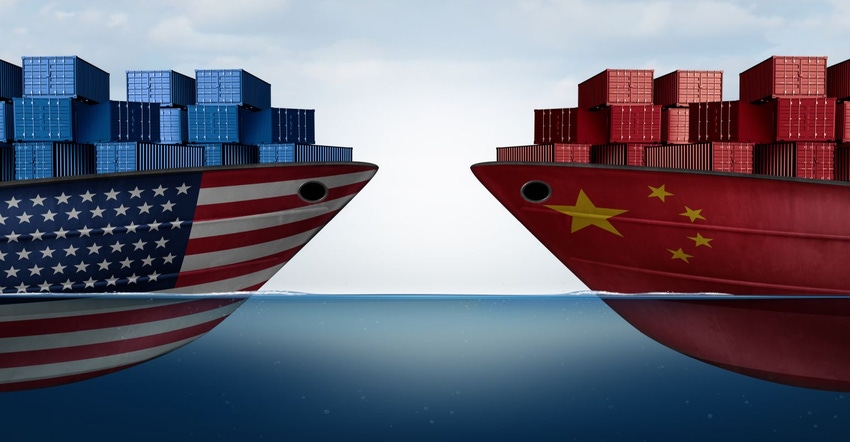USTR: China is difficult, unpredictable market for U.S. ag exporters
China has failed to take action on Phase One commitments, including a required risk assessment for use of feed additive ractopamine in pork, beef production.
February 22, 2022

Last week the Office of the United States Trade Representative released its annual "2021 Report to Congress on China's WTO Compliance," laying out the Biden Administration's assessment of China's membership in the World Trade Organization.
"China has not moved to embrace the market-oriented principles on which the WTO and its rules are based, despite the representations that it made when it joined 20 years ago," says Ambassador Katherine Tai. "China has instead retained and expanded its state-led, non-market approach to the economy and trade. It is clear that in pursuing that approach, China's policies and practices challenge the premise of the WTO's rules and cause serious harm to workers and businesses around the world, particularly in industries targeted by China's industrial plans."
Specifically on agricultural trade, the trade office noted that China is "a difficult and unpredictable market for U.S. agricultural exporters, largely because of inconsistent enforcement of regulations and selective intervention in the market by China's regulatory authorities."
In the report, USTR does point out the advances made through the U.S.-China Phase One Economic and Trade Agreement, noting that the agreement addressed many non-tariff barriers to agricultural trade and made "significant reforms in some agricultural sub-sectors, including meat and poultry products and facility registration." But China has failed to take meaningful action on other Phase One commitments, including a required risk assessment for the use of the feed additive ractopamine in pork and beef production, said USTR.
China also still has a 25% retaliatory tariff on a host of U.S. goods, including pork, a response to U.S. duties on Chinese steel and aluminum. The National Pork Producers Council is continuing to press USTR and the Biden administration to urge China to remove that tariff, which in large part caused a nearly 26% drop in U.S. pork exports to China in 2021.
The Biden Administration is pursuing a multi-faceted approach to address the harm caused by China's trade and economic policies through both bilateral engagement with China and the use of trade tools to protect American workers and businesses. The Administration's strategy also includes enhanced engagement with allies and partners in order to build broad support for solutions to the many unique problems posed by China and defending our shared interests.
The complete report on China's WTO compliance can be found here.
About the Author(s)
You May Also Like


